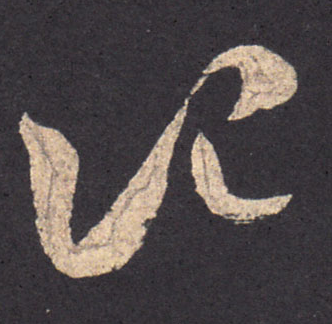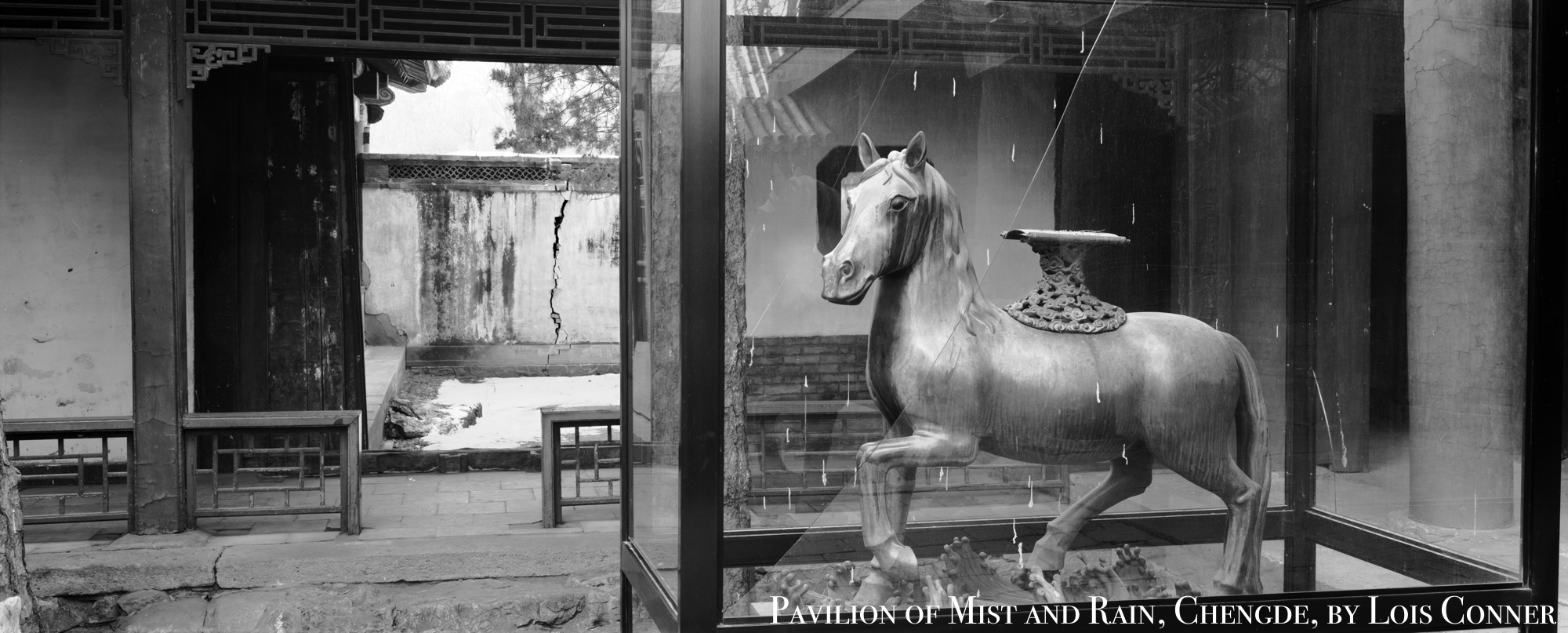Other People’s Thoughts is a section of the China Heritage site featured in our Journal. It is inspired by a compilation of quotations made by Simon Leys (Pierre Ryckmans), one of our Ancestors.
Pierre remarked that the modest volume of quotations recorded over his reading life was ‘idiosyncratically complied for the amusement of idle readers’ (see Simon Leys, Other People’s Thoughts, 2007). Our aim is similar: to amuse our readers (idle or otherwise), as is our modus operandi: to build up an idiosyncratic compendium, one that reflects the interests of The Wairarapa Academy for New Sinology and its coterie.
In collecting this material, and by adding to it over time (this is the fifth instalment in the series), we accord also with a Chinese literary practice in which quotations — sometimes called yǔlù 語錄, literally ‘recorded sayings’ — have a particular history, and a powerful resonance.

The most famous collection of recorded sayings is The Analects 論語, compiled by disciples of Confucius. Then there is the timeless 5000-words of Laozi’s The Tao and the Power 道德經, as well as the Chan/Zen 禪宗 tradition of what in English are known by the Japanese term kōan 公案 — anecdotes or statements aimed at goading an individual towards enlightenment — that date from the Tang dynasty. Modern imitations range from the political bon mots of Mao Zedong to excerpts from the prolix prose of Xi Jinping’s tireless speech writers, as well as published snippets from arm-chair philosophers and motivational speakers.
Other People’s Thoughts also finds inspiration in the ‘poetry talks’ 詩話, ‘casual jottings’ 筆記 and ‘marginalia’ 眉批 of China’s literary tradition.
***
For more Other People’s Thoughts see here.
— Geremie R. Barmé, Editor, China Heritage
16 November 2017
The Paradox of Education
The paradox of education is precisely this — that as one begins to become conscious one begins to examine the society in which he is being educated. (James Baldwin, A Talk to Teachers, The Saturday Review, 21 December 1963)
Hong Kong
Hong Kong may be small, but its people make it great. (Joshua Wong, Prison is an inevitable part of Hong Kong’s exhausting path to democracy, The Guardian, 28 November 2017)
The Church and God
Pullman: My attitude to the church is twofold. Firstly it’s where I belong — I’m a cultural Christian. Secondly, I have learned to have a grave suspicion of all religious power wielded politically.
Q: Do you think that killing God, which is one of your stated aims in your writing, is a worthwhile or necessary objective in the 21st century? (Chris2131)
A: The question doesn’t arise in western Europe, because in western Europe God is already dead. In other parts of the world, the God who is believed to exist is an exceptionally nasty character and it wouldn’t be a bad idea if it was put to sleep. (Lisa O’Kelly, ‘Philip Pullman: My daemon is a raven, a bird that steals things,’ The Guardian, 22 October 2017)
The Essay
Reading them, I was reminded of something Annie Dillard said about the essay form: ‘The essay is, and has been, all over the map. There’s nothing you cannot do with it; no subject matter is forbidden, no structure is proscribed.’ (The River of Consciousness by Oliver Sacks review – an agility of enthusiasms, The Guardian, 14 October 2017)
The Function of Freedom
[T]he ability to make sense one’s life in the world is a function of freedom. The Soviet regime robbed people not only of their ability to live freely but also of the ability to understand fully what had been taken from them, and how. The regime aimed to annihilate personal and historical memory and the academic study of society… . Much more than a problem of scholarship, this was an attack on the humanity of Russian society , which lost the tools and even language for understanding itself. The only stories Russia told itself about itself were created by Soviet ideologues. (Masha Gessen, The Future is History: How Totalitarianism Reclaimed Russia, New York: Riverhead Books, 2017, p.3)
Humanism in Revolution
Bolshevism — and Marxism in general — had a remarkably flat conception of human nature: A revolution in property relations was the only necessary condition for a revolution in human hearts. The dictatorship of the proletariat would automatically result in the withering away of whatever got in the way of Communism, from the state to the family. … …
The children of the Bolshevik millenarians never read Marx, Engels or Lenin at home, and, after the educational system was rebuilt around Pushkin, Soviet children stopped reading them in school, too. At home, the children of the Bolsheviks read what they called the “treasures of world literature,” with an emphasis on the Golden Ages analogous to their own (the Renaissance, Romanticism and the realist novel, especially Balzac, Dickens and Tolstoy).
What most of these books had in common was their anti-millenarian humanism. Some particular favorites, including A Tale of Two Cities and Anatole France’s The Gods Are Athirst, were expressly anti-revolutionary; most did the opposite of what the Bolsheviks preached by embracing the folly and pathos of human existence. The point of the golden ages, as opposed to the silver ones and any number of modernisms, is the affirmation of ‘really existing’ humanity. … …
Revolutions do not devour their children; revolutions, like all millenarian experiments, are devoured by the children of the revolutionaries. The Bolsheviks, who did not fear the past and who employed God-fearing peasant nannies to bring up their children, were particularly proficient in creating their own gravediggers. (Yuri Slezkine, How to Parent Like a Bolshevik, 30 October 2017)
Truth and China
We in the west have been led to believe, particularly since the collapse of the Soviet Union in the late 1980s, that progress and freedom are each necessary for the other, that it is not possible to have one without the other.
But what if progress and freedom are not necessarily joined? What if truth is the precarious hinge that holds freedom and progress together?
China’s great advances are, after all, the proof that if all that matters to you is progress, you can have progress without freedom. But there will be a void, and in that void a great darkness will arise.
Truth is the only force we have, the one light strong enough to combat such darkness. And if we can be persuaded the truth doesn’t exist, the light goes out, and we are condemned to darkness. (Richard Flanagan, The corrosion of truth in these strange times is terrifying, 30 October 2017)
Whinging Wining
Then, early evening Eastern Time, at a quarter to seven o’clock
Americans from sea to sea suffered quite a shock
For anyone who tried to check out potus missives they had missed
Were met with a simple message: ‘Sorry, that page doesn’t exist!’
What was it like, that silence? That blissful, peaceful sound
That fell on Earth like Christmas snow when potus’s tweets could not be found?
You know when you have tinnitus, and the ringing suddenly stops?
Or when the volume of your next-door neighbor’s party finally drops?
Or when a dog outside stops barking? Or a screaming baby falls asleep?
Or a car alarm stops honking and you’re so glad you want to weep?
Or an early-morning construction crew heeds your cease-and-desist letter?
It was like all of that at once, my friends.(from Alexandra Schwartz, The Day POTUS’s Twitter Went Dark: A Chronicle in Verse)
Literature
One of the mysteries of literature is that personal substance, as perceived by both the writer and the reader, is situated outside the body of either of them, on some kind of page. How can I feel realer to myself in a thing I’m writing than I do inside my body? How can I feel closer to another person when I’m reading her words than I do when I’m sitting next to her? The answer, in part, is that both writing and reading demand full attentiveness. But it surely also has to do with the kind of ordering that is possible only on the page. …
Every one of us is now in the position of the indigenous Americans when the Europeans arrived with guns and smallpox: our world is poised to change vastly, unpredictably, and mostly for the worse. I don’t have any hope that we can stop the change from coming. My only hope is that we can accept the reality in time to prepare for it humanely, and my only faith is that facing it honestly, however painful this may be, is better than denying it.
(‘Is it too late to save the world?’ Jonathan Franzen on one year of Trump’s America, The Guardian, 4 November 2017)
Creative Writing
Flanagan: Kif discovers the only way to become a writer is by writing.
Interviewer: Would that be your advice?
Flanagan: I have no advice. People write books in spite of themselves. Which may be why I never understood creative writing degrees. (Stephanie Cross, Richard Flanagan: Fiction is not a lie, but a truth, a necessary truth, 5 November 2017)
Editors
What makes a great editor? The answer is not obvious, because neither is the nature of an editor’s creative work. Some editors-in-chief are micromanagers. Others roam. Some are dais creatures; many huddle at their desks. The basic task of editing is to serve as a polarized filter—to let in light this way and not that way—but good magazine editors do something more: they focus light into a sensibility that comes through on each page. (Nathan Heller, ‘How Tina Brown Remixed the Magazine’, The New Yorker, 20 November 2017)
The Con Man
… our President drifts through [Tina] Brown’s memoir like a hot-air balloon in search of power lines. Vanity Fair publicizes the moniker ‘the Donald’. Brown has decided to excerpt his forthcoming book, The Art of the Deal, and that choice seems to mark the moment when her foreigner’s double consciousness sharpens into the shrewd detachment of the age. ‘It feels, when you have finished it, as if you’ve been nose to nose for four hours with an entertaining con man,’ she writes. ‘I suspect the American public will like nothing better.’ (Nathan Heller, ‘How Tina Brown Remixed the Magazine’, The New Yorker, 20 November 2017)
On the Communists
鮑彤前幾天寫的帖文:
財產公有生腐,權力私營生黑。不可低估全面腐黑的擴張欲和傳染力。
(from Lee Yee’s The Ways of the World column, 李怡:習兒子或毛孫子, 2017年10月16日)

